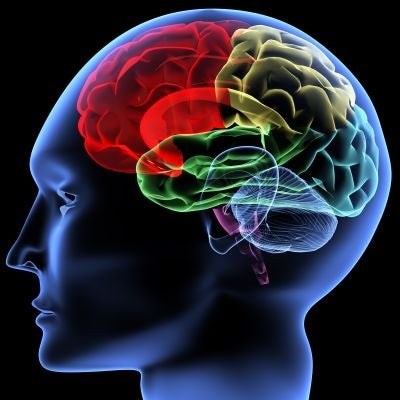Your support helps us to tell the story
From reproductive rights to climate change to Big Tech, The Independent is on the ground when the story is developing. Whether it's investigating the financials of Elon Musk's pro-Trump PAC or producing our latest documentary, 'The A Word', which shines a light on the American women fighting for reproductive rights, we know how important it is to parse out the facts from the messaging.
At such a critical moment in US history, we need reporters on the ground. Your donation allows us to keep sending journalists to speak to both sides of the story.
The Independent is trusted by Americans across the entire political spectrum. And unlike many other quality news outlets, we choose not to lock Americans out of our reporting and analysis with paywalls. We believe quality journalism should be available to everyone, paid for by those who can afford it.
Your support makes all the difference.A brain scan to detect Alzheimer's disease could be available in hospitals worldwide within the next year and could boost efforts to detect the degenerative and fatal condition, experts said on Monday.
The technique, known as a positron emission tomography (PET) scan, can find and analyze a protein known as beta-amyloid, which is linked to Alzheimer's.
"Amyloid imaging with PET scans is expected to be widely available soon for clinical practice," said Christopher Rowe, a professor of nuclear medicine at Austin Hospital, Victoria, Australia.
"It will be an important new tool in the assessment of cognitive decline."
The results from three studies on advances in PET scans for Alzheimer's were presented at a meeting of the Society for Nuclear Medicine's annual meeting in San Antonio, Texas.
Researchers said that the new methods will be of growing importance as the world population ages, and could provide clues toward treating Alzheimer's. There is no known cure.
About 18 million people worldwide suffer from Alzheimer's, the most common form of dementia.
"From a macro perspective, amyloid imaging with PET scans can help to ascertain the likelihood that individuals will deteriorate cognitively within a few years, thereby enabling more efficient channeling of health care resources," said Kevin Ong, a research scientist at Austin Hospital, Melbourne, Australia.
"From a micro perspective, planning and lifestyle modifications are possible for individuals who seek screening for Alzheimer's disease."
Such scans could find clues of the onset of Alzheimer's long before symptoms present. Previous research has shown that the disease can begin as much as decade before signs of dementia appear.
Amyloid plaque is a found in the brains of healthy older people and builds up over time. Larger, faster buildup is linked to quicker memory decline and wasting away of brain tissue.
Amyloid plaques typically grow by about two to three percent per year, and are found in about 12 percent of people in their 60s, 30 percent of those in their 70s and 55 percent of people over age 80, the researchers said.
The studies presented spanned several years of research and involved hundreds of patients at all stages of cognitive function.
Two of the studies suggested that imaging agents known as F-18 labeled tracers, F-18 Florbetaben and F-18 Florbetapir, are the most likely to move into clinical practice in the near term.
ksh/jm

Join our commenting forum
Join thought-provoking conversations, follow other Independent readers and see their replies
Comments